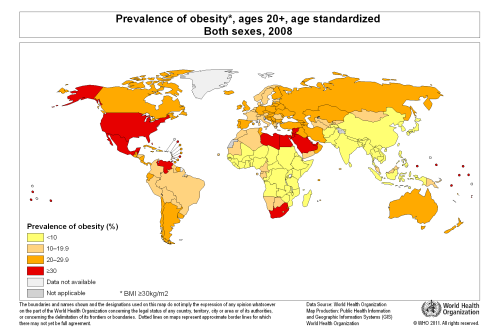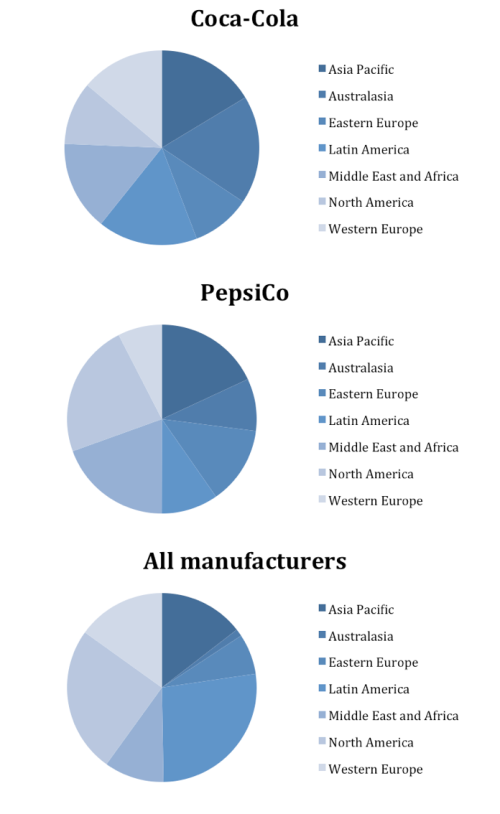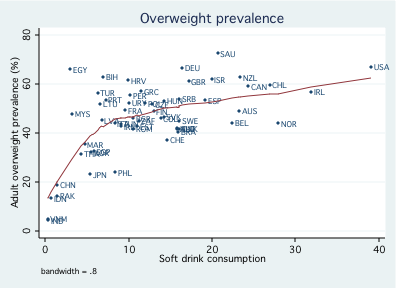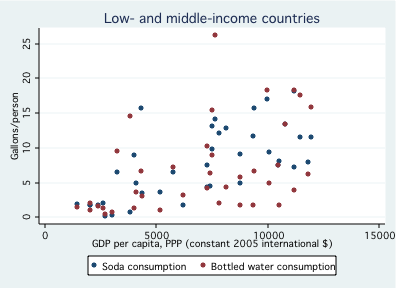 While sugar-sweetened beverages (SSBs) have garnered much attention in the US given their associations with obesity and diabetes in the Nurses Health Study and a number of other assessments, a key question is whether this effect also translates to low- and middle-income countries where both domestic and imported beverages are becoming increasingly popular. In an article just published in the American Journal of Public Health, we looked at this question using the soft drink industry’s own statistics, merged with comparative survey data on weight status and diabetes across the globe.
While sugar-sweetened beverages (SSBs) have garnered much attention in the US given their associations with obesity and diabetes in the Nurses Health Study and a number of other assessments, a key question is whether this effect also translates to low- and middle-income countries where both domestic and imported beverages are becoming increasingly popular. In an article just published in the American Journal of Public Health, we looked at this question using the soft drink industry’s own statistics, merged with comparative survey data on weight status and diabetes across the globe.
First, we looked at the industry’s data to examine how much sales in low- and middle-income countries even made up significant business for soda companies. To our surprise, the majority of soft drink sales are indeed outside of North America and Europe, and the rate of increase in these sales is highest in low- and middle-income countries:
Of course, merely correlating a rise in per-capita soda consumption to a rise in obesity or diabetes would be silly—there are many other changes taking place at the same time in low- and middle-income countries, such as urbanization and changes in the work environment that are associated with lower physical activity, changes in a number of other foods being consumed (like higher meat consumption, and higher overall calorie intake as incomes rise), and aging, among others. So instead of merely doing rough correlations, we looked at age-standardized estimates of overweight, obesity and diabetes, and corrected for other types of foods (e.g., other carbohydrates, fruits, vegetables, meats, fats, oils, and total calories), as well as aging, income and urbanization. After these factors were controlled for, soft drink consumption still was significantly related to a rise in overweight, obesity and diabetes prevalence across the globe, and most prominent in low- and middle-income nations. Even more concerning, only a small increase in per-capita consumption (gallons per person per year) was associated with a large increase in weight, after controlling for the other factors—it didn’t require much increase in consumption to show up as a major increase in overweight prevalence.
As a “natural control group”, it turns out that bottled water consumption has also increased with economic development in many low- and middle-income countries. So if there were “unobserved confounders” that we didn’t think of, including bottled water consumption in the statistical analyses, and analyzing the relationship between weight/diabetes and bottled water consumption, should give an indication that the soda-weight/diabetes relationships were spurious. But in fact, the natural control of bottled water consumption had no relationship to overweight, obesity and diabetes prevalence. Adjusting BMI thresholds for Asian countries (since a high BMI may be a poor indicator of disease-associated obesity among Asians) didn’t make any difference either. We also isolated ourselves to analyzing carbonated full-calorie soda rather than all sugar-sweetened beverages, to reduce potential confounding in industry data sources in which juices and other products that are sometimes natural and sometimes have added sugars may be mixed together.
What was particularly interesting was that income did not inevitably result in higher soda consumption. That is, there was great variation between countries in how much soda they consumed even as they experienced economic development. This is the good news: that there may be social policies and practices out there that may allow people to experience economic development without inevitably leading to dietary changes that appear to contribute to obesity and diabetes.





Thanks. Fascinating and persuasive.
Michael Lytton AJPM Blog Editor Ph: 619-990-4006 Fx: 858-534-9344
Pingback: Soda and global obesity | Dipika Gaur